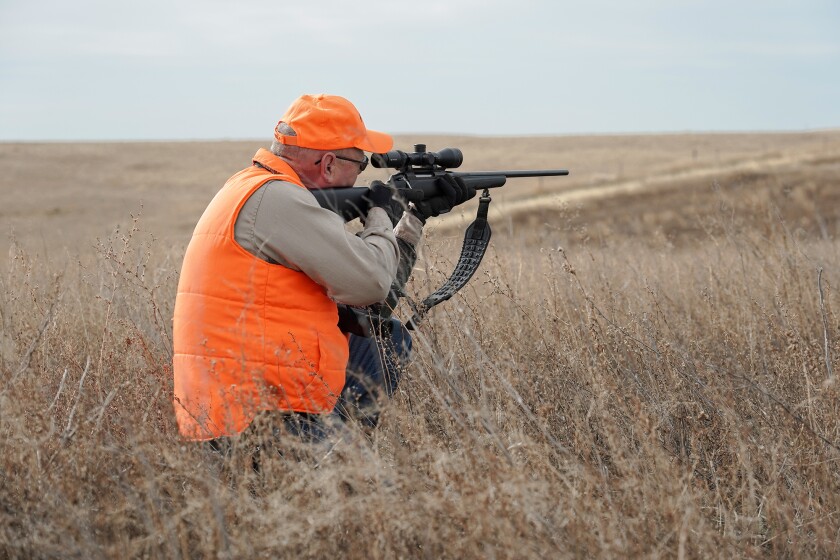
News
October 08, 2025
Doug Leier: Poaching is stealing from hunters and anglers – plain and simple
Game warden intervention is only possible if poaching events are reported promptly. That’s where the Report All Poachers program, launched in 1983, becomes vital.
**Poaching is stealing from hunters and anglers – plain and simple**
Doug Leier, a seasoned outdoorsman and conservation advocate, minced no words when addressing the issue of poaching: it's theft. He emphasizes that poaching isn't just a minor infraction; it's a direct assault on ethical hunting and fishing practices, and a loss for all those who enjoy the natural resources our state offers.
Leier points out that the impact of poaching extends far beyond the immediate loss of an animal. It disrupts wildlife management efforts, throws ecosystems out of balance, and ultimately diminishes opportunities for legal hunters and anglers. When someone illegally takes game, they are essentially stealing from everyone who follows the rules and contributes to conservation through license fees and taxes.
But what can be done to combat this ongoing problem? Leier highlights the crucial role of community involvement and the effectiveness of programs designed to encourage reporting. He specifically draws attention to the Report All Poachers (RAP) program, a vital tool in the fight against wildlife crime. Launched in 1983, RAP provides a confidential avenue for concerned citizens to report suspected poaching activity.
Game wardens, the dedicated law enforcement officers responsible for protecting our wildlife, can only respond effectively if they are aware of poaching incidents. Prompt reporting is key. The RAP program empowers individuals to become active participants in conservation by providing a means to alert authorities to illegal activities.
The success of the RAP program hinges on public awareness and willingness to step forward. Leier urges anyone who witnesses suspicious behavior, such as hunting out of season, taking more than the legal limit, or using illegal methods, to contact the RAP hotline. These reports are treated with confidentiality, protecting the identity of the reporting individual.
By working together and utilizing programs like RAP, we can send a clear message that poaching will not be tolerated and that we are committed to protecting our precious wildlife resources for future generations. Remember, reporting poaching is not just about catching criminals; it's about safeguarding our natural heritage.
Doug Leier, a seasoned outdoorsman and conservation advocate, minced no words when addressing the issue of poaching: it's theft. He emphasizes that poaching isn't just a minor infraction; it's a direct assault on ethical hunting and fishing practices, and a loss for all those who enjoy the natural resources our state offers.
Leier points out that the impact of poaching extends far beyond the immediate loss of an animal. It disrupts wildlife management efforts, throws ecosystems out of balance, and ultimately diminishes opportunities for legal hunters and anglers. When someone illegally takes game, they are essentially stealing from everyone who follows the rules and contributes to conservation through license fees and taxes.
But what can be done to combat this ongoing problem? Leier highlights the crucial role of community involvement and the effectiveness of programs designed to encourage reporting. He specifically draws attention to the Report All Poachers (RAP) program, a vital tool in the fight against wildlife crime. Launched in 1983, RAP provides a confidential avenue for concerned citizens to report suspected poaching activity.
Game wardens, the dedicated law enforcement officers responsible for protecting our wildlife, can only respond effectively if they are aware of poaching incidents. Prompt reporting is key. The RAP program empowers individuals to become active participants in conservation by providing a means to alert authorities to illegal activities.
The success of the RAP program hinges on public awareness and willingness to step forward. Leier urges anyone who witnesses suspicious behavior, such as hunting out of season, taking more than the legal limit, or using illegal methods, to contact the RAP hotline. These reports are treated with confidentiality, protecting the identity of the reporting individual.
By working together and utilizing programs like RAP, we can send a clear message that poaching will not be tolerated and that we are committed to protecting our precious wildlife resources for future generations. Remember, reporting poaching is not just about catching criminals; it's about safeguarding our natural heritage.
Category:
Sports